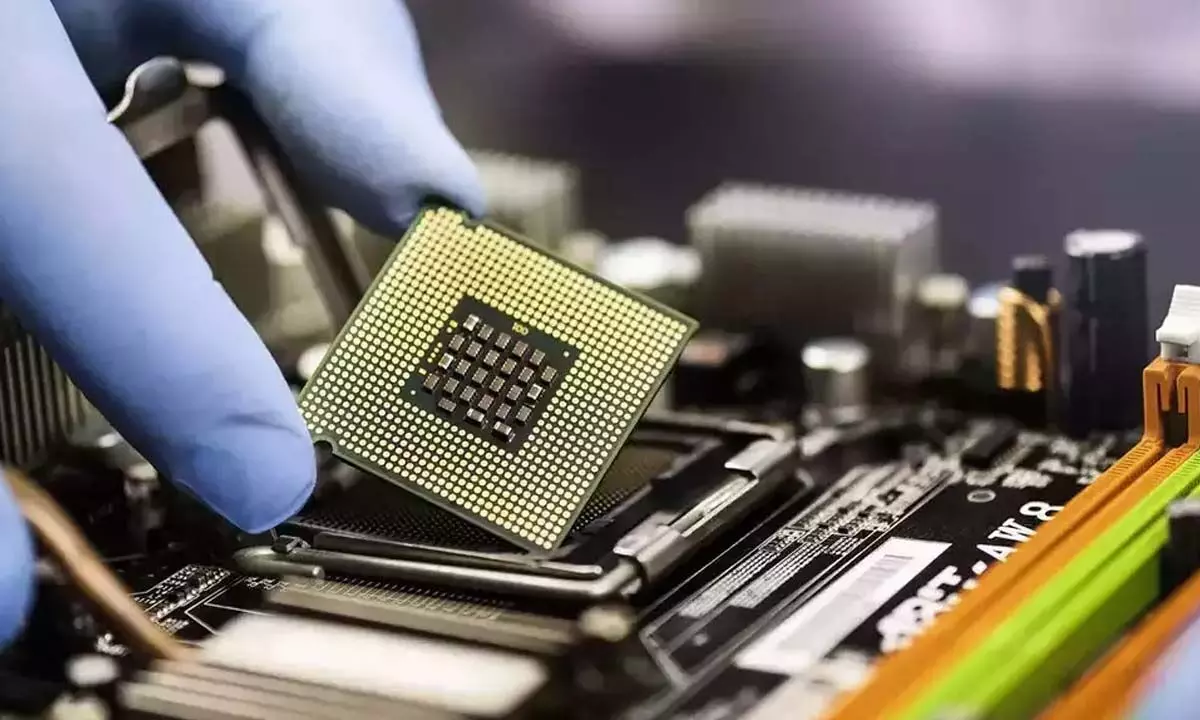Indian chip industry comes of age as global players eye major forays
A recent World Semiconductor Trade Statistics Organization (WSTS) industry forecast -endorsed by Semiconductor Industry Association - projects that against last year’s 4.4 per cent increase in the annual global sales could decrease by 4.1 per cent in 2023.
image for illustrative purpose

A recent World Semiconductor Trade Statistics Organization (WSTS) industry forecast -endorsed by Semiconductor Industry Association - projects that against last year's 4.4 per cent increase in the annual global sales could decrease by 4.1 per cent in 2023. The forecast estimates the industry's worldwide sales at $580.1 billion in 2022, up from the 2021 sales of $555.9 billion. In 2023, global sales are projected to touch $556.5 billion, with the key factor being the 21.2 per cent decline in the sales recorded by Chinese products.
Till date, manufacturers in a small number of East Asian countries like China, Taiwan and South Korea have supplied most of the world's semiconductors.
On December 15, 2021, the Indian government unveiled a semiconductor programme of Rs 76,000 crore aimed at luring semiconductor and display fabs to the nation. In the first round, which ended last February, the government received proposals for three semiconductor fabs and two display fabs. In response to industry concerns, the government changed the plan in September 2022 to provide a flat 50 per cent incentive to all certified fabs.
Taking the lead, Tata Group in 2020 incorporated TEPL , which is a greenfield venture with expertise in manufacturing precision components. The Tata's plan to invest $90 billion in the semiconductor industry across the group companies over the next five years. It plans to foray into advanced chip manufacturing, popularly known as fabs, in course of time.
A positive is that global chip manufacturing giants are betting big on India. Foxconn and Vedanata entered into a partnership for a semiconductor fabricating plant in Dholera, Gujarat, which is likely to become operational next year. While the Foxconn-Vedanta project will see about $19.5 billion dollars being pumped into it, several other chip-making global leaders are also eyeing to set up shop in India.
Taiwan's TSMC is keen on establishing a chip-fabricating factory in India, towards which it is in talks with government agencies to check the plan's feasibility. Speculations are rife about a possible tie-up between Tata-TSMC, which already has a big office in Bengaluru. Reportedly, Singapore-based IGSS Ventures and ISMC are also exploring similar options. According to reports, ISMC, the semiconductor consortium, plans to invest over $three billion in their chip fabrication facilities in Karnataka, the likely location.
The latest is that Japanese chipmaker Renesas Electronics has forged a strategic partnership with Tata Motors for designing, developing and coming up with semiconductor solutions. Now, they are looking to establish their own fabs in India for making and exporting silicon chips for EVs to their global customers.
It's not just Asian countries that are eyeing an India foray. Companies like AMD and Intel are also looking to set up their factories in the country, through their partners. Micron Technology, a USA-based manufacturer of semiconductor devices, plans to invest more than $41 million on a production plant in Hyderabad.
The current investment forecast is around $25 billion, according to Rajeev Chandrasekhar, Minister of State for Electronics and Technology. According to a survey by the India Electronics & Semiconductor Association (IESA) and Counterpoint Research, the country's semiconductor component business would touch $300 billion in total revenues by 2026.

